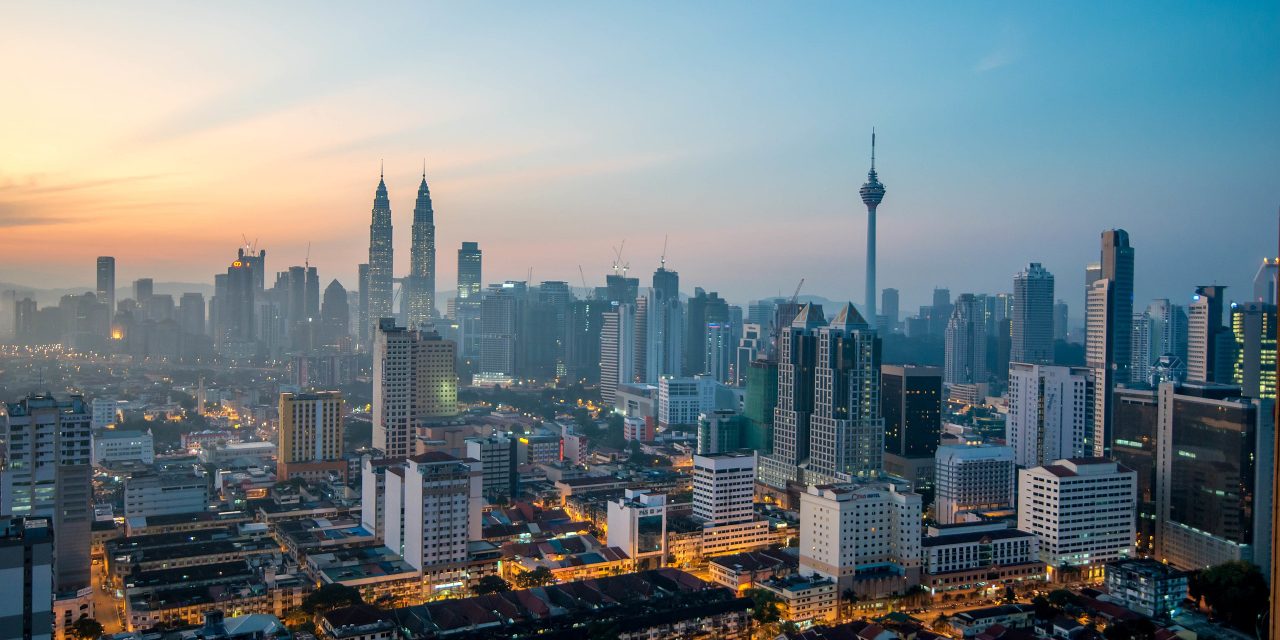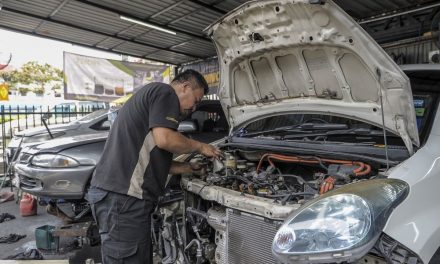It seems that Malaysian office workers, although embracing the new norm, still believe that a physical office is important. They perceive it as having a vital role in terms of collaboration, professional growth, and career advancement.
According to a survey by Savills Malaysia Sdn Bhd, 81% of the respondents said the office remained a necessity for a company to operate successfully, with 47% saying that it is “always” important while 34% acknowledged that it was important “at least for the short term”. The remaining 19% said physical offices were unnecessary.
Savills Malaysia conducted the survey, called What Workers Want, over a six-week period to gauge future sentiment and demand for offices, implications of the pandemic, preferences on working days in the office, and factors to consider for future office design. The survey was commissioned by TRX City Sdn Bhd, the master developer of Tun Razak Exchange (TRX).
The responses are from non-managerial employees (50%), managerial staff (40%), and senior management (10%), where a quarter of the respondents worked for large (250 to 999 employees) or very large (over 1,000 employees) companies. Participating sectors included financial services (22%), real estate and construction (20%), technology (9%), and telecommunications (8%). The questions revolved around nine key parameters on what makes an ideal workplace, namely agility, amenities, career, experience, location, productivity, space, technology, and well-being.
Savills Malaysia deputy managing director Nabeel Hussain says physical offices remain vital for business recovery and in ensuring an expedited return to normalcy. “Seeing that the hybrid working model appears to be [a mainstay in Malaysia for the foreseeable future], a delicate balance between business and economic needs and employee preferences is the ideal solution, and that’s what companies should be focusing on during this reopening period.”
“The physical office environment likely needs to be enhanced by other factors to make the return to the workplace in the current environment more attractive. The presence of solid hardware and software solutions takes on greater importance than ever and is key to supporting the evolving work environment.”
Of the nine key areas and 42 variables, two of the top three variables are related to technology, with quality of IT infrastructure and mobile signal rated as “high importance” for 77% and 69% of respondents respectively.
The role of technology is an emphasis in supporting the future workplace. The survey results illustrate the primary importance of quality WiFi and mobile signals in the workplace, with less reliance on mobile apps.
Video conferencing will continue to be utilized due to its convenience and familiarity. However, this does not mean it can replace face-to-face collaboration. That is why workplaces will evolve into hybrid mode, whereby a mix of in-person and remote communication will take place. For this to be a success, the technology infrastructure must be in place.
Hybrid mode is highlighted as the survey found that 93% of respondents (61% prefer to work at the office only and 32% prefer to work both at the office and from home) believe that matters such as creativity and collaboration, meeting work targets, and achieving career growth, are still best met in the office environment.
Cleanliness and hygiene are a priority.
In terms of the experience key parameter, the survey found that cleanliness and hygiene are naturally important for employees when returning to the workplace. Some 65% of the respondents placed cleanliness as being of high importance, followed by 64% for air quality. Building experience is also important, with 52% placing high importance on the ease of access in and around the building such as the availability of stairs, lifts, and electronic door entries.
According to the Savills Malaysia report, “Returning to an existing building, from both the landlord and tenant’s perspective will be complex — vertical transport capacity and arrival or exit strategies for lifts and stairs will be challenging. Similarly, washrooms, lobbies, entry points, and circulation will be high-risk touchpoints that require vigilant management and sanitization. Lift capacities in high-rise buildings will be compromised and will require careful management.”
About 31% of the respondents preferred their companies to provide more plants and greenery in the office and Savills Malaysia expects there to be a higher emphasis on outdoor spaces. For offices in urban environments or locations with limited access to nature and outdoor spaces, natural daylight, lighting design, and plants are viable and effective alternatives that can help enhance one’s well-being.
In terms of agility, only 42% of Malaysians reported being comfortable with using shared desks. The increased awareness of cleanliness and hygiene, as well as control of personal space, maybe a factor for this reduced inclination. Some 37% responded that having an assigned desk is a highly important attribute to creating an ideal workplace.
The same percentage said it was important for their workplace to have large meeting rooms with audio and video call facilities. The third highest is for personal storage or lockers. This shows that Malaysians may be less open to agile work settings compared with those in Europe, the Middle East, and the Africa (EMEA) region, which reported a higher proportion of positive responses towards an agile working environment (55% on average).
A better balance and well-being in an employee’s working life is a driver of the future working environment. Hence, when it comes to amenities, there is a rising demand for facilities that support fitness programs, high-quality food and dining options, and alternative places to connect in a social setting. The results of the survey showed that the highest-ranked amenities included cafés and other food facilities. Savills Malaysia predicts that future workers will show a higher preference for closer proximity to retail and leisure facilities in their workplace.
According to the report, Malaysian employees see offices as critical for their professional career growth, collaborative work, and cultivating a sense of belonging to their companies. However, for aspects such as personal growth, mental and physical health, and work-life balance, the majority of the respondents said there had to be a combination of being in the office and at home.
Savills Malaysia associate director of research and consultancy Fong Kean Hwa concurs that most office workers will not resist returning to the office as they believe going to the office would benefit their physical and mental health, thus further supporting their professional and personal development.
The conclusion made is that coming to the office is no longer considered for completing tasks that could easily be completed at home. Hence, offices of the future must be prepared to be an avenue that fosters collaboration and dialogue for inspiration, innovation, and creativity.
When asked about their level of comfort in the office environment, the respondents indicated that the three biggest factors contributing to this are personal safety, managed flow of people, and their health and well-being, with each receiving 73% responses. This shows the growing importance of corresponding facilities and health performance indicators.
When it comes to location, 32% of the respondents preferred a city center office (Kuala Lumpur), followed by 21% for suburban locations (Petaling Jaya, Shah Alam, Damansara, Cheras, and other Klang Valley suburbs). Some 19% preferred their offices to be located outside of the Klang Valley and 24% preferred to work from home.
Commuting is a key aspect of choosing a work location, with nearly 60% of Malaysian respondents indicating that the financial cost and length of commutes are highly important factors in their working lives. About 72% of respondents said cars were their preferred mode of transport while 16% preferred the train (MRT, LRT, monorail, Komuter). Although the percentage of preference for public transport is relatively low compared with private vehicles, Savills Malaysia says the provision of public transport connectivity will continue to have a major influence on office workers’ preferred hybrid method of working.
A safe return to the office.
The survey also asked respondents about their productivity rates. About 49% of Malaysians perceived that productivity was the same for both working from home and in the office. This balanced perspective indicates that employers will have fewer barriers in asking staff to return to the office. Another indication is that working from home does not necessarily negatively impact productivity.
According to the report, “For Malaysians, most respondents preferred working remotely for two to three days (45%). About 15% of the respondents preferred to work from the office only, which is almost the same as the people who preferred remote work only.”
As previously mentioned, Malaysians value personal space, hence sharing desks is not preferred. Those who are not happy to share desks place higher importance on comfort factors such as color, lighting, noise levels, smell, temperature, security, cleanliness, and air quality compared with those who are okay with sharing desks. These comfort factors are important should a Malaysian organization choose to transition to an agile working environment.
Savills Malaysia senior vice-president Zawani Abidin says there has been an increase in tenants performing in-depth workplace studies to analyze their company’s culture and working habits. “[They also] ensure that any changes made to their office, such as size, density, layout and so on, reflect who they are now and, most importantly, who they aim to be as we move into the post-Movement Control Order environment.
“The general aim is to achieve a balance between their business objectives, employee needs, technology improvements, and environmental concerns, all while navigating this current economic climate, which requires fiscal responsibility.”
For the well-being aspect of the survey, physical offices seem to have a higher degree of positive impact on Malaysians’ physical and mental health. Some 62% and 57% of respondents placed a rating of seven or higher for physical and mental impact respectively.
The report mentioned that anecdotally, those who have worked in offices in other countries opine that Malaysian offices are highly social places with many workers having close friends in the organization. This may be a contributor to the positive impact offices have on Malaysians’ physical and mental health because research has found that having friends at work can increase motivation, productivity, and job satisfaction.
However, 30% of the responses show that mental and physical exhaustion is apparent due to working-from-home arrangements. One-third of the respondents said they experienced increased working hours due to the blurred lines between work and home boundaries.
About 45% said they felt socially isolated. Symptoms included depression, anxiety, and deterioration of fitness levels. The provision of appropriate facilities and programs in the office is clearly an important immediate focus for companies to mitigate the occurrence of such symptoms.
These are clear indications that a safe return to the office must be a key aim for organizations. “There will be a strong desire to feel safe in the workplace, to perceive that organizations have given due care and attention to cleaning and operational regimes for as long as necessary. The employees’ perception of a safe working environment is vital to the transition period of returning to the office,” says the report.









